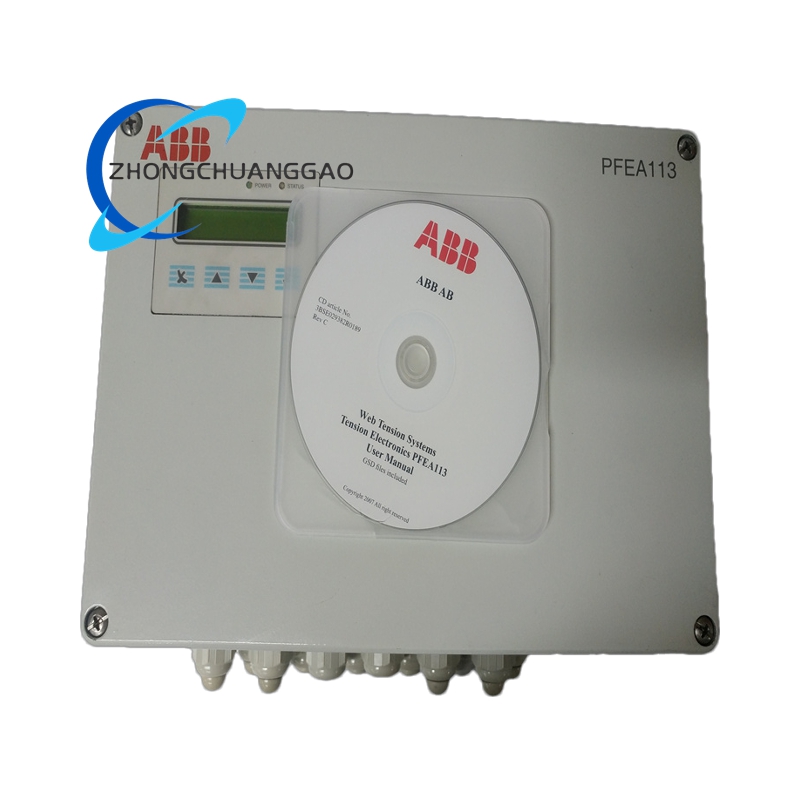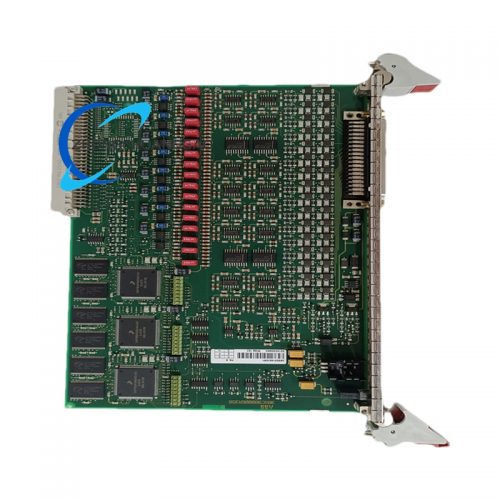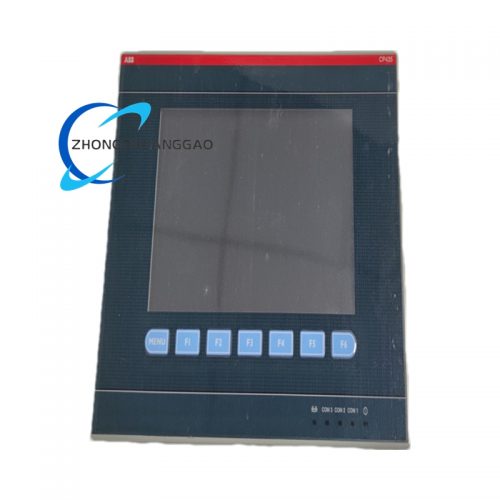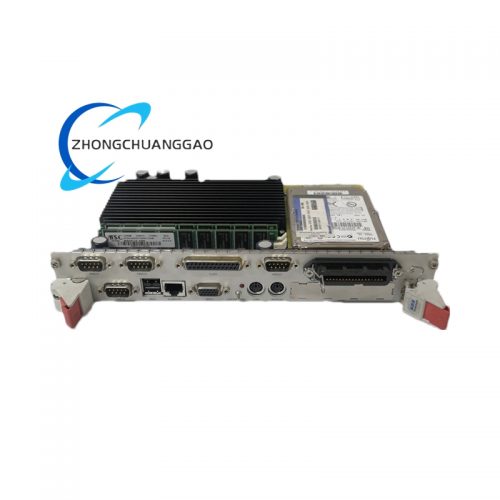Product Short Description
Technical Specifications:
- Control Type: Digital tension control with PID algorithms.
- Input/Output Channels:
- 2 analog inputs (for tension measurement).
- 2 analog outputs (for actuator control).
- 4 digital inputs/outputs (configurable for status monitoring and alarms).
- Tension Measurement Range: 0–1000 N (adjustable based on application).
- Control Accuracy: ±0.5% of setpoint under stable conditions.
- Response Time: <10 ms for rapid adjustments.
- Communication Protocols: Profibus-DP, EtherCAT, Modbus TCP.
- Power Supply: 24 V DC ±10% (nominal 24 V DC).
- Operating Temperature: 0°C to +55°C (industrial environments).
- Storage Temperature: -25°C to +70°C.
- Protection Class: IP20 (IEC 60529).
- Dimensions: 120 mm × 80 mm × 40 mm (compact DIN rail-mountable design).
- Weight: Approx. 200 g.
- Certifications: CE, UL, and IEC compliance for global use.
Description
Functional Characteristics:
- Real-Time Tension Control: Adjusts actuator outputs dynamically to maintain consistent tension.
- PID Tuning: User-configurable proportional, integral, and derivative parameters for optimal performance.
- Multi-Zone Support: Controls tension across multiple rollers or sections in a process line.
- Diagnostics: Built-in self-testing and fault detection for reduced downtime.
- Remote Configuration: Software-based setup via ABB’s DriveWindow or third-party tools.
- Modular Design: Compatible with ABB’s AC500, AC800M, and other PLC platforms.
- Energy Efficiency: Minimizes power consumption during operation.

Application Scenarios:
- Printing Industry: Regulates paper tension in web offset, flexo, and digital printing presses.
- Packaging: Controls film tension in wrapping, bagging, and pouch-making machines.
- Textile Manufacturing: Maintains fabric tension in weaving, knitting, and dyeing lines.
- Metal Processing: Manages strip tension in rolling mills, slitting lines, and coating systems.
- Converting: Optimizes tension in laminating, embossing, and coating processes.
- Wire and Cable: Ensures stable tension during extrusion, winding, and spooling.
- Automotive: Controls belt tension in assembly lines and component manufacturing.
Key Advantages:
- Precision: Sub-1% tension accuracy for high-quality output.
- Durability: Industrial-grade components resist vibrations, dust, and temperature fluctuations.
- Flexibility: Adaptable to diverse materials (paper, film, metal, textiles).
- Integration: Seamless connectivity with ABB and third-party automation systems.
- Cost-Effectiveness: Reduces material waste and maintenance costs through reliable control.
- Global Support: Backed by ABB’s worldwide service network and technical expertise.




Reviews
There are no reviews yet.